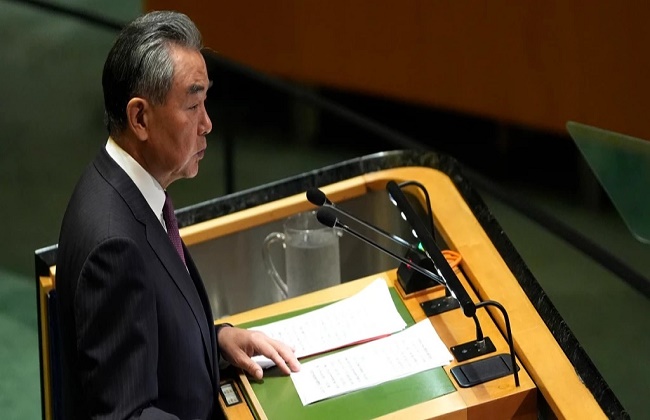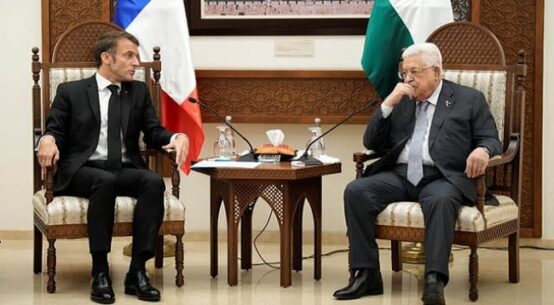
Three days before his communist government turns 75, China’s foreign minister warned fellow leaders Saturday against an “expansion of the battlefield” in Russia’s war with Ukraine and said the Beijing government remains committed to shuttle diplomacy and efforts to push the conflict toward its end.
“The top priority is to commit to no expansion of the battlefield. … China is committed to playing a constructive role,” Wang Yi said. He warned against other nations “throwing oil on the fire or exploiting the situation for selfish gains,” a likely reference to the United States.
Wang’s speech appeared to break no new ground, as is generally China’s recent practice at the U.N. General Assembly’s annual meeting of leaders. In fact, his boss, Chinese President Xi Jinping, has not participated in the leaders’ meeting since 2021 — and then only virtually, during the pandemic. Xi has not attended in person for several years.
On Friday, on the assembly sidelines, China and Brazil sought to build enthusiasm for their peace plan for Ukraine. They said about a dozen countries signed a communique that says they “note” the six-point plan. The plan calls for a peace conference with both Ukraine and Russia and no expansion of the battlefield, among other provisions.
Ukrainian officials have given the proposal a cold shoulder, but the countries that signed the communique are forming a group of “friends for peace” for their U.N. ambassadors to keep the conversation going among themselves. Ranging from Algeria to Zambia, the members are largely African or Latin American countries. Wang made sure to note Friday that the group doesn’t decree individual countries’ policies.
Russian Foreign Minister Sergey Lavrov said at a news conference Saturday that Russia was ready to provide assistance and advice to the group, adding that “it’s important for their proposals to be underpinned by the realities and not just be taken from some abstract conversations.”
Sovereignty has long been a talking point for China
China has been an ally of Russia, a nation that has been accused of violating the U.N. Charter by Secretary-General António Guterres, the U.S. and many world nations. Moscow insists its so-called “special military operation” is in self-defense, which is allowed in the U.N. Charter.
China’s continuing and vehement insistence on respect for other nations’ sovereignty is not only a cornerstone of its foreign policy but a foundational ethos for the government of a nation that has traditionally struggled to maintain control at its edges — from Xinjiang and Tibet in the far west to Hong Kong and Taiwan off its east coast.
China’s current government was established on Oct. 1, 1949, when it was proclaimed by communist revolutionary-turned-leader Mao Zedong in Beijing’s Tiananmen Square after a civil war with Chiang Kai-shek’s Nationalist government. The Nationalists began ruling Taiwan as a self-governed island, and that practice continues today — and is something that China rejects and insists is only a temporary situation for territory it considers sovereign.
“There is no such thing as two Chinas or one China-one Taiwan. On this matter there is no gray zone,” Wang said. “Taiwan will eventually return to the embrace of the motherland. This is the overwhelming trend of history that no one can stop.”
The Republic of China — the government in Taiwan established by Chiang Kai-shek — was a member of the United Nations until 1971, when the U.N. recognized the Beijing government. Since then, Beijing has worked to isolate Taiwan by rewarding nations that recognize it diplomatically and, sometimes, punishing those who do not. At every General Assembly high-level meeting, the leaders of scattered Taiwan-supporting nations — usually small ones — lament at the rostrum about the island’s government being shunned by the international community.


